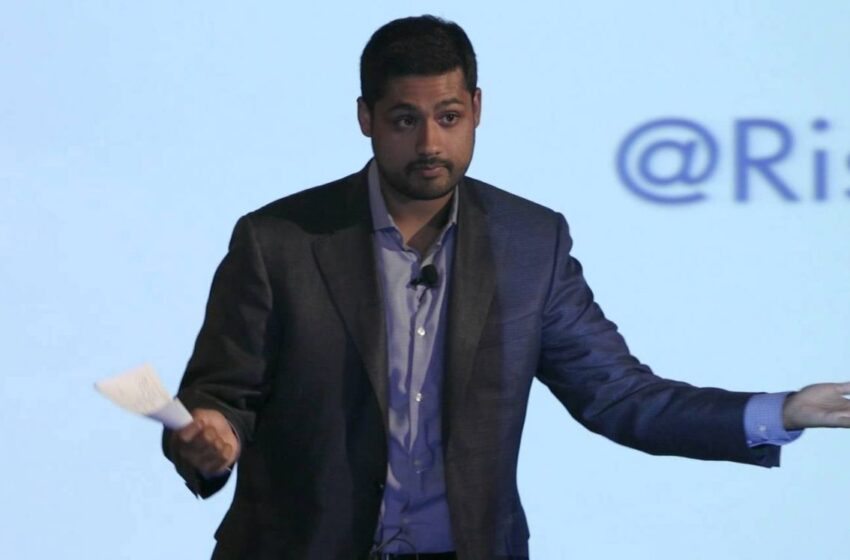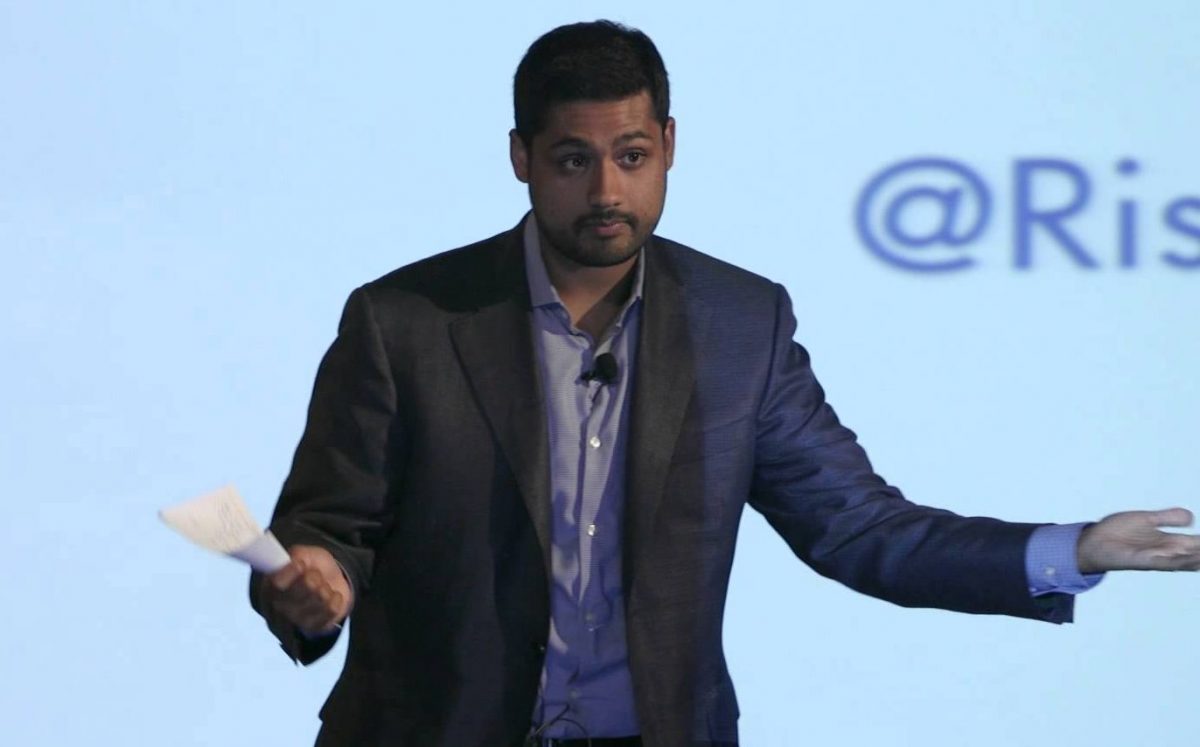Two former Indian American executives convicted in $1 billion scam

Rishi Shah

Outcome Health executives face 30 years in prison for bank fraud, wire fraud and mail fraud
Two former Indian American executives of Outcome Health, a Chicago-based health technology start-up company, have been convicted for their roles in a $1 billion fraud scheme targeting the company’s clients, lenders, and investors.
Besides Rishi Shah, 37, co-founder and former CEO and Shradha Agarwal, 37, co-founder and former president of Outcome, Brad Purdy, 33, former COO and CFO has also been convicted by a federal jury, according to a Justice Department news release.
Read: Indian American entrepreneur Rishi Shah becomes tech’s newest billionaire (June 15, 2017)
The defendants face a maximum penalty of 30 years in prison for each count of bank fraud and 20 years in prison for each count of wire fraud and mail fraud. A sentencing hearing will be scheduled at a later date.
Outcome installed television screens and tablets in doctors’ offices around the United States and then sold advertising space on those devices to clients, most of whom were pharmaceutical companies, the release stated.
According to evidence presented at trial, Shah, Agarwal, and Purdy sold advertising inventory the company did not have to Outcome’s clients, then under-delivered on its advertising campaigns.
Despite these under-deliveries, the company still invoiced its clients as if it had delivered in full.
Shah, Agarwal, and Purdy lied or caused others to lie to conceal the under-deliveries from clients and make it appear as if the company was delivering advertising content to the number of screens in the clients’ contracts.
Purdy and others at Outcome also inflated metrics that purported to show how frequently patients engaged with Outcome’s tablets installed in doctors’ offices.
According to the trial evidence, the scheme targeting Outcome’s clients began in 2011, lasted until 2017, and resulted in at least $45 million of overbilled advertising services.
Shah, Agarwal, and Purdy were also convicted of defrauding Outcome’s lenders and investors. The under-delivery to Outcome’s advertising clients resulted in a material overstatement of Outcome’s revenue for the years 2015 and 2016.
The company’s outside auditor signed off on the 2015 and 2016 revenue numbers because Purdy caused others to fabricate data to conceal the under-deliveries from the auditor, according to the release.
Shah, Agarwal, and Purdy then used the inflated revenue figures in Outcome’s 2015 and 2016 audited financial statements to raise $110 million in debt financing in April 2016, $375 million in debt financing in December 2016, and $487.5 million in equity financing in early 2017.
Shah, Agarwal, and Purdy lied to investors and lenders to conceal their ongoing under-delivery of advertising campaigns for clients.
Shah and Purdy also misrepresented to investors the efficacy of Outcome’s advertising campaigns by concealing the fact that it had failed to meet return-on-investment commitments to clients.
The $110 million debt financing resulted in a $30.2 million dividend to Shah and a $7.5 million dividend to Agarwal; the $487.5 million in equity financing resulted in a $225 million dividend to Shah and Agarwal.
Shah was convicted of five counts of mail fraud, 10 counts of wire fraud, two counts of bank fraud, and two counts of money laundering.
Read: Indian-origin start-up executives convicted of $1 billion fraud in US (April 12, 2023)
Agarwal was convicted of five counts of mail fraud, eight counts of wire fraud, and two counts of bank fraud. Purdy was convicted on five counts of mail fraud, five counts of wire fraud, two counts of bank fraud, and one count of false statements to a financial institution.
Three other former employees of Outcome pleaded guilty prior to trial. Ashik Desai, the former chief growth officer pleaded guilty to one count of wire fraud; and Kathryn Choi, a former senior analyst, and Oliver Han, a former analyst, both pleaded guilty to conspiracy to commit wire fraud. Desai, Choi, and Han will be sentenced at a later date.

